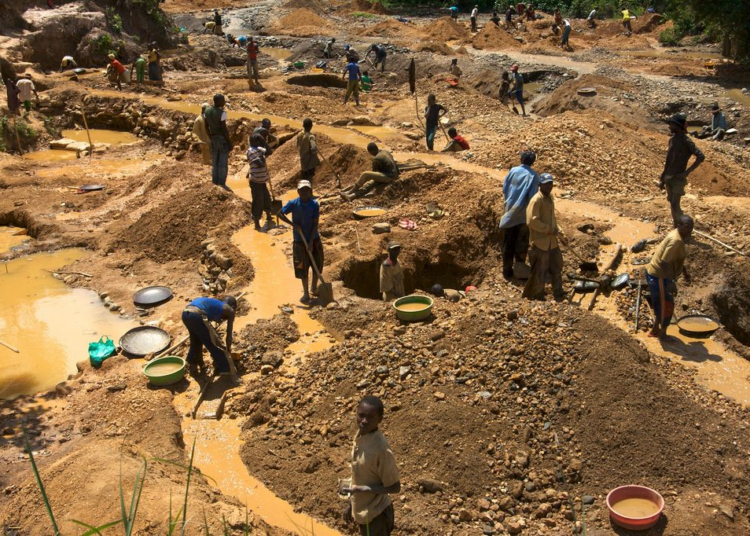The House of Representatives has resolved to investigate illegal mining in the solid mineral sector which costs the federal government $9 billion annually with only three per cent royalties paid by a few licensed miners.
This resolution followed the adoption of a motion moved by the Deputy House Leader, Hon. Ibrahim Abdullahi Halims (APC, Kogi) at plenary on Wednesday.
Moving the motion, Halims said the vast mineral resources in Nigeria that are largely untapped and underutilised, which can play a critical role in diversifying the economy, creating jobs, and boosting revenue generation.
He called for focused intervention and radical measures to address the issues affecting the solid minerals sector and its underperformance, as indicated in the Nigeria Extractive Industries Transparency Initiative (NEITI) 2021 report.
The lawmaker said the report puts the mineral sector’s contribution to the Gross Domestic Product, GDP, at 0.63 per cent, or N1.10 trillion, and contribution to government revenue, at 2.62 per cent of the government’s N6.63 trillion total revenue.
Halims expressed concern about the current challenges bedevilling the solid mineral sector because of illegal mining activities and acknowledged its detrimental impact on the environment, national security, and economic growth.
He also expressed worry about; “the loss of revenue from unregulated and illicit mining operations, costing the government $9 billion annually with only three per cent royalties paid by a few licensed miners, hindering the country’s mineral resource utilisation.
“The negative impacts of illegal mining, which have led to insecurity and conflicts over control of mining sites and their resources and escalated into violence, thus exacerbating existing political and social tensions in the affected communities.
“Due to the increased prevalence of illegal mining and other criminal activities affecting host communities, the governors of Taraba, Benue, and Nasarawa States have signed Executive Orders banning illegal mining to protect host communities and regulate mining activities in their states.”
Halims emphasised the urgency of the federal government to swiftly and decisively address the revitalisation and development of this critical sector for the benefit of the Nigerian economy and its citizens.
We’ve got the edge. Get real-time reports, breaking scoops, and exclusive angles delivered straight to your phone. Don’t settle for stale news. Join LEADERSHIP NEWS on WhatsApp for 24/7 updates →
Join Our WhatsApp Channel










